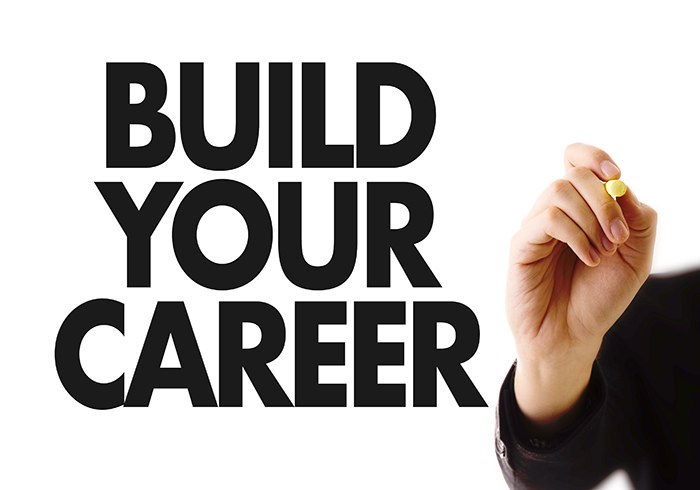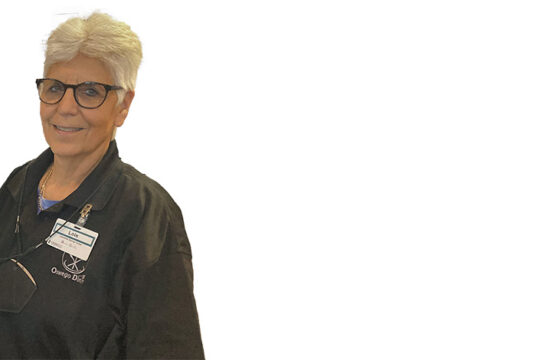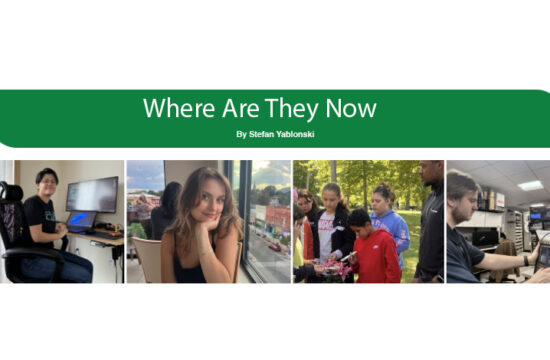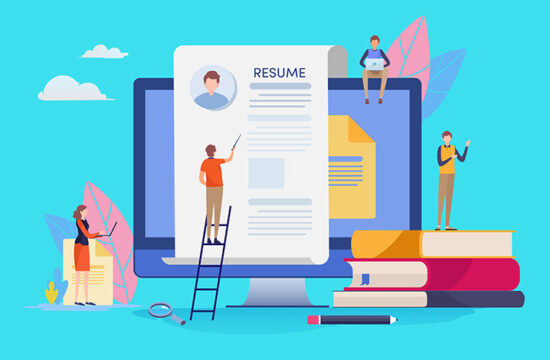How to prep for a career when college is still your day job
By Melissa Stefanec
Graduation — it’s the light at the end of the college tunnel.
Although there are probably a thousand great reasons to get a college education, getting that diploma reigns supreme. Getting a diploma opens doors and creates opportunity. It signals the end of the college journey, but as with any end, it’s also a beginning — it’s an entry into the terrifying world of careers.
Career is a scary-sounding word. For a lot people, it conjures up images of timecards, Outlook calendars, cubicles and water-cooler chitchat about the weather. That interpretation of the word implies a career is something that inevitably happens to a person, akin to growing old. However, the best and most rewarding careers don’t simply happen.
Most enjoyable and rewarding careers are made from the ground up. So, my advice to college students — no matter how far along they are in the process — is simply to start prepping for your career now.
Here is some advice on how to do that.
Good things come to those who plan, but better things come to those who act.
Planning is a great way to organize your thoughts and set a course of action. However, a plan is only as good as its execution. Start thinking about what you want to do after college. Maybe you want to go straight into the work force. Maybe you want to look into volunteer or stewardship opportunities. Maybe you are considering graduate school.
Whatever you think it is you want to do, start doing your legwork now. Better to encounter obstacles or unexpected adversity before your post-college life goes live.
So, before you commit to the rest of your life, I suggest you do these things.
Contact Career Services
SUNY Oswego and Cayuga Community College have career services offices on campus.
These offices are a place for students to do everything from exploring majors, to writing a resume, practicing job interview skills, and searching for careers. These offices have great and customized opportunities for students entering any industry. It can’t hurt to take a few hours out of your day and see what you can gain by visiting Career Services.
Get a LinkedIn profile
Once you have a profile, start networking. If you have friends who recently graduated, connect with them. Connect with your professors. Connect with your parent’s friends. Connect with your friends’ parents. Connect with your high school teachers and mentors. Connect with fellow college students whom you admire.
However large the world seems, it is a remarkably small place. Take advantage of the connections you don’t know you have.
Find some companies you think you like
Start researching organizations you could see yourself working for. When you find a few you are interested in, start getting in the weeds. Find out if there are any alumni working there. Find out if that company has an internship program. See if the company you can picture yourself with has a junior mentorship program or allows college students to shadow people on the job.
Find out if you like a day in your future before it becomes your present. That way, changing course is easy.
Get to know your professors
Professors are typically well-connected people who have a lot of great life experiences. If you really like or admire a professor, talk to him or her about specialized opportunities.
Maybe that professor knows someone who is looking for field technicians next summer.
Maybe your professor knows of a great research opportunity. Maybe he or she knows of a great volunteer opportunity that will connect you with all the right people. You never know until you ask and therefore differentiate yourself.
Volunteer
Outside of the personal rewards, which can’t be understated, volunteering is a great way to grow your network. It also gives you life experiences and knowledge that usually can’t be gained from a job or school.
When employers hire, they place a lot of emphasis on soft skills (i.e., the kind of skills that can’t be rated with standardized testing or a number). Volunteering builds your emotional, personal and interpersonal skill sets. Give it a try.
Get enough sleep, healthy food and exercise
College is practice for the rest of your adulthood, so start establishing healthy patterns now. If you try to live on bad food, too little sleep and little to no exercise, you will be able get by while you are young.
However, that stamina and invincibility won’t last forever. Maybe they will last for a couple of months. Maybe they will last for a decade. But, at some point, they will run out. By that time, bad food, bad sleep and no exercise will be an ingrained habit and very hard to free yourself from. Don’t make life hard on yourself. Start being kind to your mind and body now.
Get an internship or co-op
Internships and co-ops are a great way to find out if your chosen career path is actually going to be right for you.
They are also a great way to test out how you fit into corporate culture. If you really don’t like your gig, you still have plenty of time to plan for a new one. Isn’t it better to do that while you are still in college and have stability? Why wait until you have the choice between proverbially dying in a cubicle or paying rent?
Start researching geographic areas and salaries
Once you have found a career you want to pursue, start researching what it pays and where that career is most popular. Sites like Glassdoor, Indeed and PayScale take information from users and come up with numbers based on job type and geographic location.
This is a great tool to see how your future career measures up. You may want to change majors, minors or concentrations if you don’t like what you see.
It’s OK to change direction during college. It’s OK to change direction after college, but there is no time to change direction like the present.
Have a little fun while you are at it
I know this article presents a hefty to-do list, but it’s nothing compared to carrying around the mental weight and worry derived from being underprepared. If you plan well, you don’t have to be dogged by an army of “what-ifs” in your future. You can feel secure and in charge. In turn, you will be able to enjoy your downtime in a healthy way.












